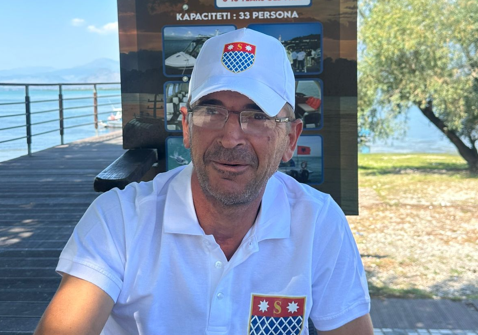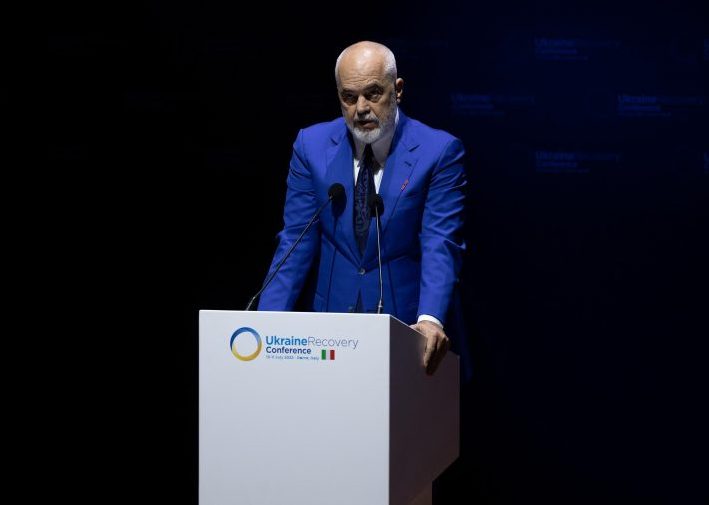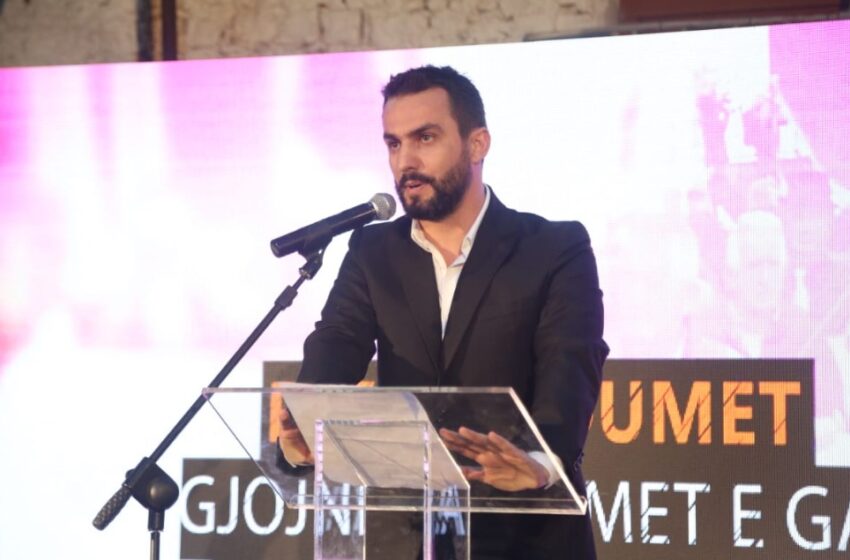Albanian political parties finalize candidate lists for May 11 elections

March 12 marks the deadline for submitting candidate lists for 53 political parties competing in the May 11 parliamentary elections. The parties are now in the final stages of assembling their teams, with the Socialists fighting for a fourth mandate and the Democrats seeking to return to power after 12 years in opposition.
Why is this important: The submission of candidate lists finalizes party preparations for the May 11 elections. It marks the end of a period of very intense competition for a place on the list that is often accompanied by tensions and defections that can cost the parties dearly on election day. In some districts, where mandates are often decided on a handful of votes, such defections can have an outsized impact. The differences in candidate selection processes highlight the contrasting approaches between the Socialists and Democrats, but also reveal the uphill climb the Democrats will face in May 11. government and its policy direction.
Context: In an effort to avoid divisions and tensions, Sali Berisha’s Democrats implemented a process similar to the American primaries for selecting their candidates for parliament. However, the process was marred by numerous irregularities, such as the lack of transparent membership lists to verify who was voting, video footage of commission members stuffing ballot boxes, and significant contestations. An additional source of tensions, stems from the fact that Berisha made his own people compete to earn a spot as a candidate for parliament, while reserving safe seats for his smaller traditional allies, who often represent merely a party name on the ballot box and lack any significant electoral following. The received a total of 8 guaranteed places out of the 46 names on the safe lists.
In contrast, the Socialists followed the same well-established model they have used for years, where regional political leaders—who understand the realities of their respective areas—propose names they believe should be included as candidates, consult them with the Socialist leader, and then have the final lists approved by the party’s leadership. Each of the 12 political leaders of the respective districts met individually with the Prime Minister to discuss and finalize the lists of the areas they oversee.
On Monday, in a meeting with the parliamentary group, Rama explained to the current MPs the selection process, which will be based on balancing the experience within the current parliamentary group with the energy of younger candidates, primarily coming from the “MP We Want” platform, which the Socialists have been building for nearly a year.
What did Rama say: Rama admitted that a significant number of candidates who applied through the platform will be part of the Socialist team for May 11. A major change in these elections is the introduction of two lists:
- A closed list, where candidates are elected based on party votes and not through nominal individual votes.
- An open list, where each candidate must secure personal votes to win a mandate.
One in every three candidates on both lists must be a woman.
“We have not yet fully completed the process, which will naturally be finalized by the Socialist Party leadership. However, what I want to share with you is that anyone who does not accept to be on the open list must inform their respective political leader,” Rama told the parliamentary group.
The fundamental rule of the new list is that no male MP who has previously served at least one term for the Socialist Party will be included in the closed list.
According to Rama, the battle should be fought by those who have the most experience and who have received the most from the voters and the Socialist Party itself. The open list will also include young candidates. Political leaders will be placed on the closed list to ensure equal competition. If the opposite were to happen, political leaders would only focus on securing votes for themselves, creating an unfair advantage and disrupting the structure of the entire team.
What else: The Socialist leader has not yet decided whether he will be a candidate for parliament or not.
“To be honest, I never really understood why I should be in parliament as an MP while holding this position. On the other hand, it would also be unfair to place my name on the list, take votes, and confuse people. So, those in the open list must compete in a completely equal race.
I still haven’t fully made up my mind, but I might not be on the list at all—being an MP for everyone in my role as Prime Minister and not taking anyone’s place.”
To ease potential discontent among current Socialist MPs regarding their placement on the lists, Rama stressed the importance of energizing the party:
“I believe that precisely because these newcomers are younger and are being included to give the Socialist Party a powerful blood transfusion—making it both the oldest and the youngest party in Albania—they should be there. Meanwhile, those who have already been there must be in the field securing as many votes as possible for the Socialist Party.”
For those MPs who will not be on the lists, Rama left the door open by announcing that the structure of the government after May 11 will be different from that of the previous three mandates.
“Keep in mind that, given how crucial these elections are, I believe and am convinced that regardless of whether they are in the parliamentary team or not, every single person here in this room will be needed for the next Socialist Party mandate. The new government structure will be announced later.”
Albania’s European future: Rama linked the importance of these elections to Albania’s future in the EU, emphasizing that the current geopolitical climate makes the country’s integration more crucial than ever.
“EU membership is now more than ever an existential issue for Albania and the Albanian people. Here we come to the other side of the coin—NATO, and the great tectonic shifts taking place in a world where a peace path between Russia and Ukraine has opened, setting global geopolitics into unprecedented motion. We are too small to decide anything in this grand context, but our fate and interests are too important to be left adrift. Our firm and stable positioning—unshaken by the internal noise—is fundamental. No other force outside the Socialist Party has the capacity to communicate with the world today—not with Europe, not with NATO, not with anyone.”
According to Rama, a victory for the opposition in the May 11 elections would put Albania’s EU accession at risk.
He also dismissed the opposition’s attempt to rebrand their coalition using high-paid American consultants, referencing their campaign strategist from the U.S.
“There is no media or propaganda trick, no tourist from America paid exorbitant amounts to apply Trump-style makeup to their campaign, that can change this fundamental reality.
This is the defining difference between us and them, between progress and stagnation. Either Albania and the Albanian people will seize this window of opportunity to close negotiations in 2027 and enter the EU within this decade, or we will remain like other countries in the region with an uncertain future.”
What’s next: A vote for smaller parties, according to Rama, is also a wasted vote based on mathematical calculations from the electoral code.
“There are no new parties that can achieve even 1/100th of what we have done and can do as the only true new force.
Numerically, it’s simple: voting for another party might—if the odds are perfect—elect one new MP. But voting for us guarantees a Socialist Party team with many new MPs and fresh energy.”
The final lists will be approved by the Socialist leadership on Wednesday, March 12. At midnight on the same date, the deadline for submitting candidate names to the Central Election Commission (KQZ) expires.


